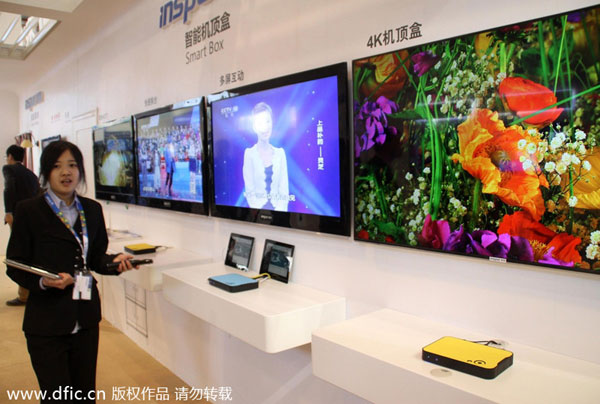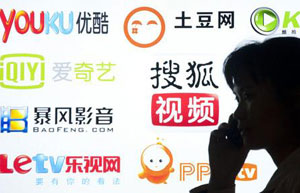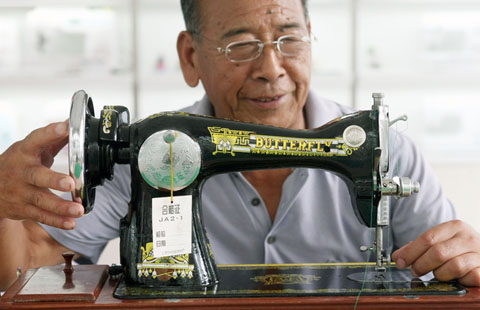Set-top box content under govt scrutiny
By He Wei in Shanghai (China Daily) Updated: 2014-06-26 07:03
 |
|
A woman demostrates functions of set-top boxes at the 22nd China Content Broadcasting Network Exhibition in Beijing, March 22, 2014. [Photo/IC] |
Rough days seem to be ahead for set-top box providers in China, with many of them facing government scrutiny for violation of broadcast rules.
Many set-top boxes, which stream shows from Chinese online video sites and games, music and other applications, are said to be working with unlicensed online program providers and contain illegal content, said a statement issued by the State General Administration of Press, Publication, Radio, Film and Television, the broadcast regulator.
Gadgets like Tmall Magic Box, a device backed by e-commerce giant Alibaba Group Holding Ltd, offer access to third-party online video applications such as Youku, iQiyi and Sohu. Such connections provide technical support for viewers to access content that is either obscene in nature or detrimental to political stability, the regulator said.
The administration has urged Internet TV content providers, including Wasu Media & Network Co Ltd and BesTV New Media Co Ltd to rectify their products by shutting download channels of third-party applications and all Web browsers.
The regulator's move comes after several Internet companies entered the online TV market. In a typical case, the firms are responsible for the platform content, technology and software, while their partners provide the Internet TV license needed for operation, as well as broadcasting and policy support.
The government has for long imposed tighter controls on television programs than Internet content.
For instance, all set-top box manufacturers are required to get content only from the seven licensed Internet-television content providers in the country including China National Television and IPTV operators like Wasu.
Online video portal LeTV.com and cellphone maker Xiaomi Corp were among the first batch to enter the set-top box market. LeTV has even embarked on its namesake Internet TV set.
The newest player in the set-top box game, the Super Definition Box, is a collaboration between premium video content provider iQiyi, appliance manufacturer Skyworth and e-store JD.com.
Wu Chunyong, a veteran industry analyst, said most of the Internet firms are either cooperating with license-holders for content, or teaming up with third-party applications. "The move will force companies collaborating with third-party apps to adjust their policies. License holders have to strictly abide by the rules," said Wu.
The directive is likely to squeeze out some Internet TV players that are banking on integrating Internet resources, said Li Zhi, principal analyst of IT consultancy Analysys International.
China's Internet TV market is expected to reach $1.38 billion in 2016, according to a study conducted by Digital TV Research, a consultancy.
 |
 |
| Baidusued for $49.2m for copyright violations | Alibaba buys stake in online video firm Youku Tudou |
- China regulates instant messengers
- China adds 3.32 GW of solar capacity in H1
- Coal companies stoke up prices
- China Unicom H1 profit up 25.8%
- A fashion show in gold
- Nation on course to become world's largest cruise market
- China's iDreamSky begins trading at Nasdaq
- Priceline takes $500m bond stake in Ctrip














